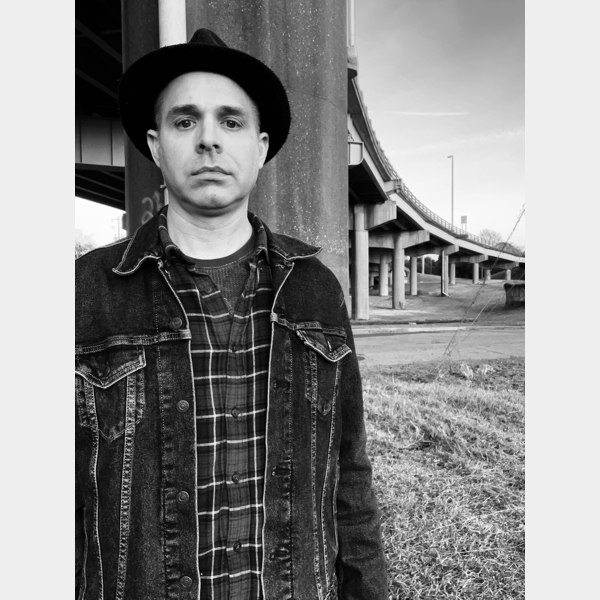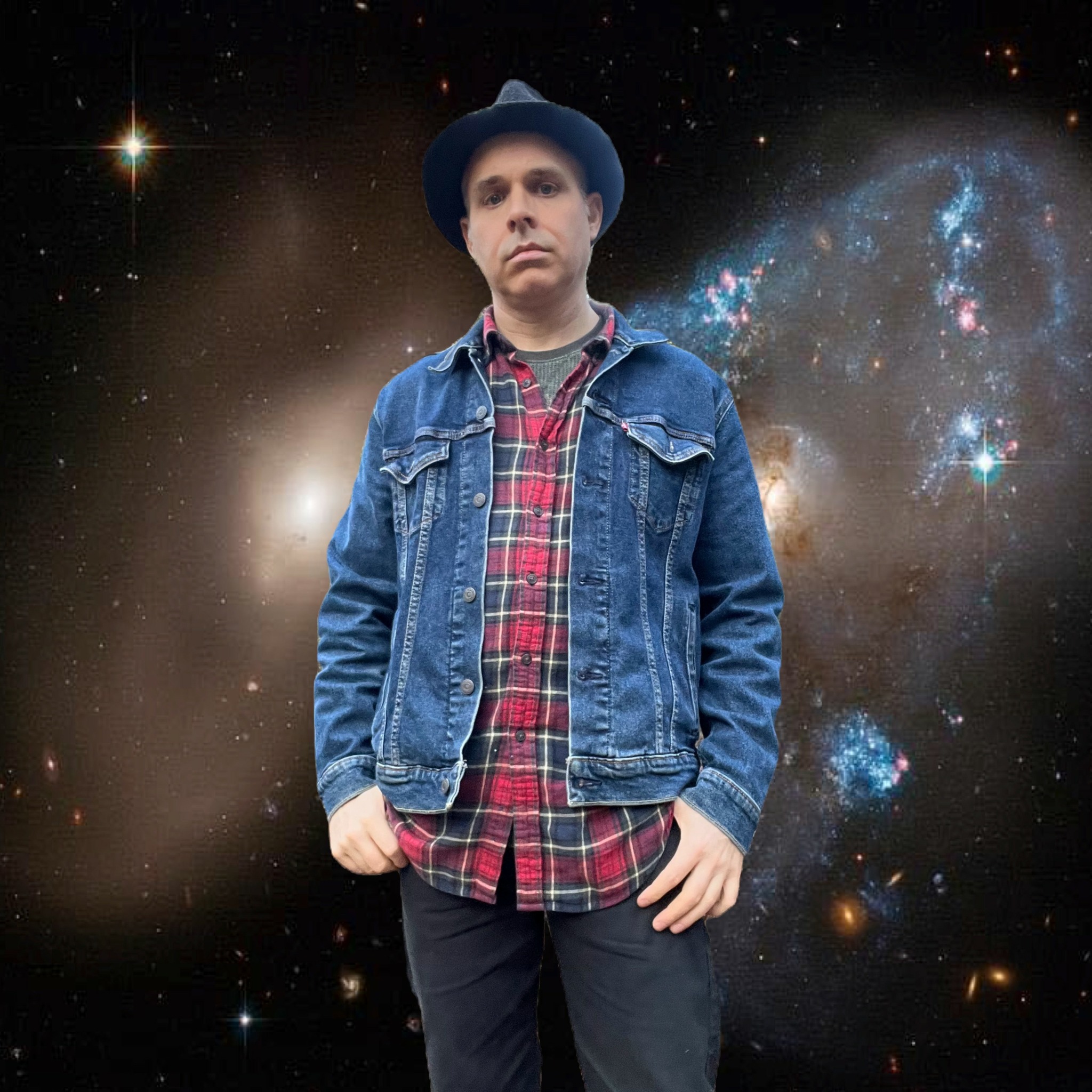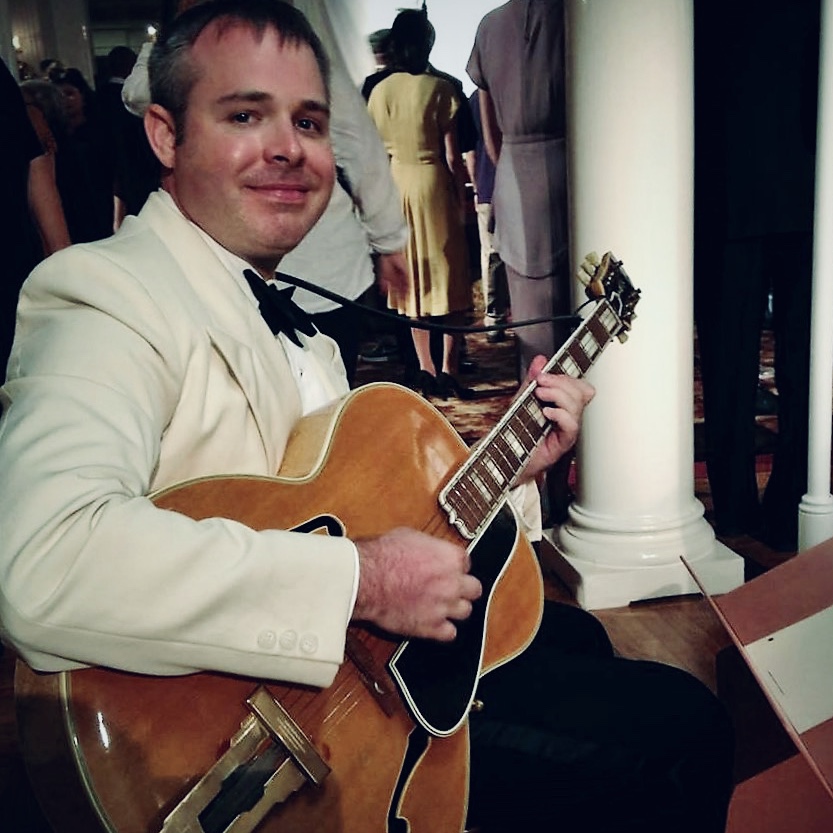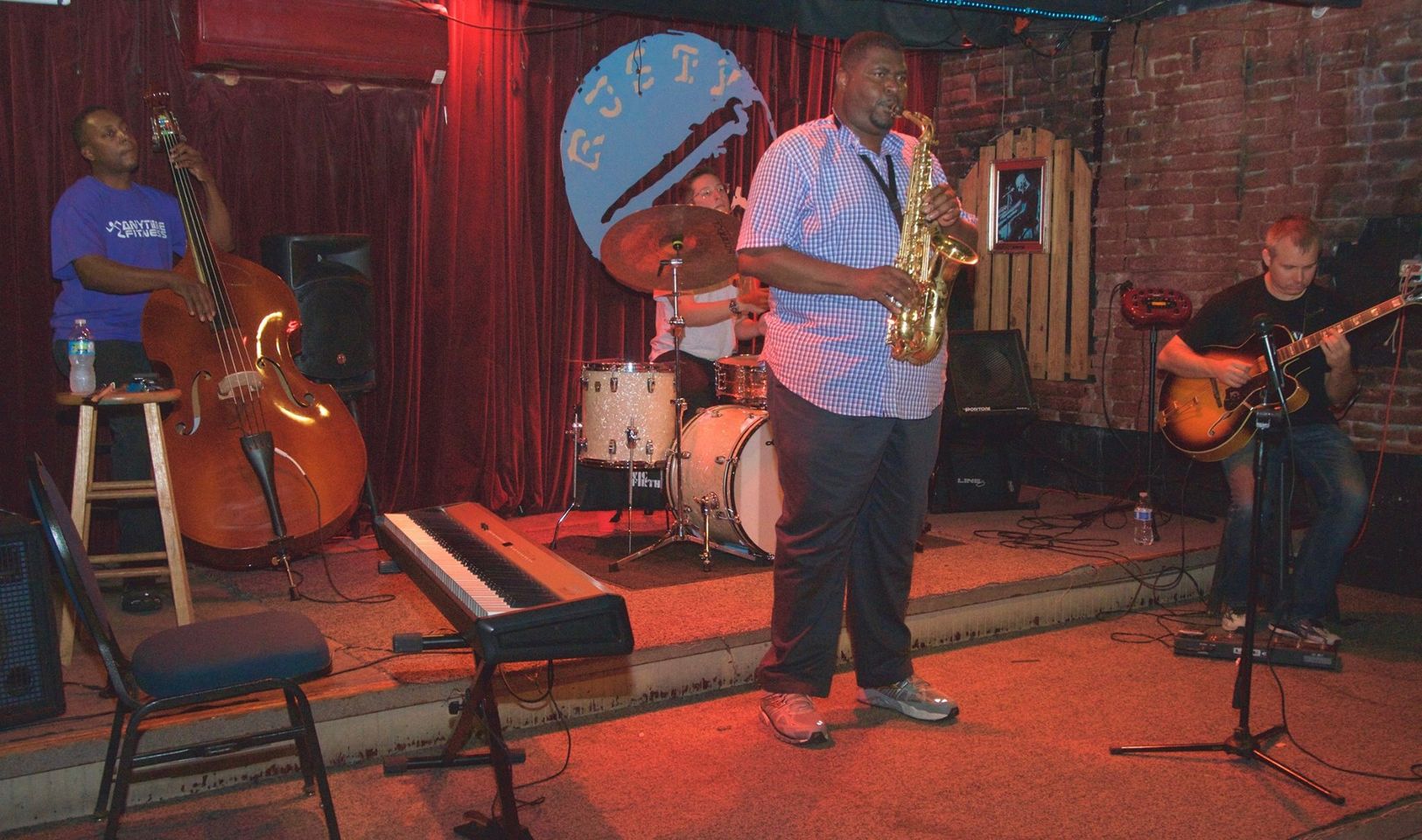We’re excited to introduce you to the always interesting and insightful Chris Luther. We hope you’ll enjoy our conversation with Chris below.
Alright, Chris thanks for taking the time to share your stories and insights with us today. Can you talk to us about how you learned to do what you do?
My father had a guitar and every once in a while my brother and I would pull it out of the attic and try to learn songs by ear. My dad new a few songs and would show us various picking patterns and chords. One day the guitar never went back into the attic. I grew up listening to music of all kinds. I had records and tapes started to build a collection of my own. I remember my first tape was a band called “Sha-na-na”, which featured rock and roll and doo wop revival group from the late 1960s. My parents had an incredible record collection of Popular music including Jazz, Folk, Blues, Motown, Country and Rock. Some of my first favorites were Richie Valens, the Beatles, Elvis Presley, Buddy Holly, Hank Williams, Peter Paul and Mary, The Mamas and the Papas and the Kingston trio. We would spend hours listening to records, talking about the artists and reading the liner notes. My dad always had National Public Radio (NPR) on in the car. Still to this day I love listening to classical while I am driving around the city. I became a good listener with a well rounded collection of music and that led to a great appreciation. In grade school I remember on celebration day, which was like a music and singing class, I could not get music out of my head. The melodies would stick in my mind and I would constantly hear them in my mind.
A friend I grew up with went to a Mormon church and they would have music performances and social events. It was kind of random but one night my mother suggested we should go see a live band perform at the church. I don’t know if it was the whole family or just me and my mom but we went to the event to check out the music. Richard Knight, a Country Western guitarist and singer, was performing with his band. The played Country music, Rock n Roll, and other popular songs. I remember them playing “Achy Breaky Heart”, by Billy Ray Cyrus and just loved everything about that night. People were dancing, the ladies were having a good time, and I was hearing live guitar and voice backed by a band in real life. The night and atmosphere electrified me. A few days later my friends mother suggested that he and I take guitar lessons with Richard. I learned how to read music, pick and strum chords. I also learned and how to play songs and sing. I studied with Richard for about a year and a half and it was at that time that he proposed I should go to Nashville. He suggested that I could study further to become a country guitarist and I remember feeling honored that he would say that about my playing. Sadly, I did not make it to Nashville. It would have meant we would need to move. After a lot of discussions with my parents my folks encouraged me to study jazz so that I might be able to play in the Hight School jazz band. I began taking lessons with Greg Hyslop, the local jazz guitar teacher from Guilford college around age 12. I also enrolled in the Greensboro music academy and studied in combos with Thomas Taylor and John Brown.
Eventually my brother and I started playing with other people in the city. We formed our first band “Bliss Monkey” and by the age of 16, I was playing parties at peoples houses as well as clubs. I remember posting a lot of flyers everywhere to get people to come out to our shows. We wrote songs and compiled a set. We played with a lot of energy and would always get calls to come back. We networked with other bands and were broadened our social network. Eventually I was performing with many bands including “The Bandits”, “The Dagobah System”, and ” The Shakers”. These were mostly punk and Rock n Roll bands. At this time I was also performing with the High School Jazz band and various other jazz combos. I learned how to handle the money, songwriting, and advertising along the way. We made mistakes but we learned from them and it always pushed us forward.
I think that starting at a very early age gave me enough to feel as comfortable as one can in this industry. All of the skills I learned from performing helped me connect with the audience and this fed more energy to keep going. The music lessons helped me learn my instrument and the listening helped me to create and write music. The business side was already in decline by the 1990s but I think I learned what I could from the industry prior to 1999. It was a combination of all these experiences that forged a path that would lead me to where I am today.
To speed up the learning process I think I could have practiced a lot more sight reading. For the readers who do not know the difference, sight reading is taking a random piece of music you have not previously worked on and play it in a group setting. I did not even know that there were two types of reading until college. I was a good ear player and had a feel for music but I did not practice sight reading in as much as I could have. Having a bit more of the sight reading under my belt would have helped me tremendously by the time I got to university.
For the most part I could hear music and play what I was hearing. I would pick stuff off of the radio, records or tapes and learn how to play that way. Later I found out that this was literally transcribing music. Picking out songs like this quickly helped develop my ear and musical concepts. I also thought of music from a writers point of view. That is, I would think of what the music was saying melodically, lyrically and harmonically. It gave me a “birds eye view”, of how the song was written and what emotions the lyricist was trying to convey to the listener. My earlier songs were very simple but effective. I think the most essential of all these skills that helped me the most was the ability to enjoy and appreciate all forms of music. This helped my musicianship and made me respect the craft and trade when working with others.
I think at some point I got a little overwhelmed with all of the commotion of the industry. It is like those plate spinners on the old variety shows. Everyone is a nervous wreck watching the guy spinning plates. It catches up to you eventually. For some reason after college I never felt “good enough”. I had a bit of an estrangement from the university and some of my professors shunned me. I really took that hard. It wasn’t until the pandemic happened that I realized that the industry was just going in the wrong direction and that was the cause of a lot of problems in the private sector as well as in the world of academia. I think also I started to withdraw socially. I spent most of my life in a practice room or on stage performing in front of crowds. I barely have worked on my personal life and I think that may have held me back. Fortunately I am starting to focus more on a healthier work-life balance.

Chris, before we move on to more of these sorts of questions, can you take some time to bring our readers up to speed on you and what you do?
I am a performing guitarist and songwriter. I started very young and basically followed the music path that was laid out before me. I played in many rock n roll and punk bands as a younger person but started to focus on jazz mostly by the age of 18. I played jazz in Middle School and High School. I attended Jamey Aebersold Jazz camp 4 years in a row. I moved to Wilmington around 2000 and tapped into the jazz scene very quickly by connecting with the music program at Cape Fear Community College. Those were some of the best days of my life. By the time I got to UNCW I was already performing around the city with many musicians from the area. I studied jazz guitar, theory, and arranging at university and played in jazz combos. After attending UNCW and studying with their music department things started to really come together. I was the house guitarist for the Rusty Nail Jazz Jam from 2007- 2020 until roughly when the pandemic hit. I was responsible for learning basically every jazz standard you can think of and I would have to improvise solos over songs night after night even on songs I did not know. Eventually I became worth my salt in Wilmington N.C. After college I started composing and writing again. Around 2007 I was approached by a staff writer from Paramount Pictures and was encouraged to start writing music again. I began writing composition and eventually was led back songwriting.
I provide jazz guitar performances and I am a songwriter and composer. I provide entertainment for the public and perform for dinners, weddings, parties, concerts, and entertain restaurants and venues of all kinds.
I am honored to have been able to contribute to the artistry of jazz music and songwriting. It has not been an easy path but I am forever grateful that I was able to arrive where I am today. Jazz is living, breathing and speaking every day. It is a huge part of modern music and has played a major part in my songwriting and composition. If you work hard and study with integrity the benefits will come. One of the best parts of being an improviser and writer is that I don’t really know what I am going to write or play. Wether I am playing a solo on stage or writing a country ballad, I just let the music and lyrics guide me. It all comes back to the listening. I listen to what the muse asks me to play and I try my best to honer her. I have written nearly all kinds of music including; gypsy jazz, commercial music, rock, reggae, punk, blues, jazz, orchestral and music for film sequences. I am eternally grateful the muse has blessed me with her spirit. It is incredible what you can write when you listen.

What can society do to ensure an environment that’s helpful to artists and creatives?
Here are four things you can do to help U.S. musicians and songwriters continue to create in our modern ecosystem. First, buy singles and albums directly from their website or merchandise tables. The digital service providers (DSP’s) are ripping off artists year after year. Buying directly puts money directly into the pockets of the artists themselves. Second, try to physically go to their shows and buy merchandise from their tables. Most musicians and songwriters barely break even on tour. If you can afford a T-shirt or an album that will help them out tremendously and they will be able to continue to practice their craft. Third, subscribe to their newsletters and social platforms. During and after the pandemic it became obvious how little the U.S. values and appreciates it’s public goods cultural arts. The “for profit” model is not our goal. Our industry has changed again and we now have moved to a subscription based business model. Subscribing to newsletters, liking and commenting on our social media platforms helps music grow as a whole. Fourth and probably one of the most important things you can do is to try and appreciate their art and positively support it in public. It takes a lifetime of work for musicians and writers to put their craft out in to the world and share their public goods. Try appreciate artists for their craft itself and further than just your opinion. In other words, give art a chance. Talking a performance or musical work down publicly can be harmful. If you don’t like an original piece of music keep it to yourself.
Part of the reason the music industry is suffering today is because fans and musicians alike do not take the business part seriously. It seems like every time I tell someone what I do for a living they are somewhat shocked and ask the question, ” Is that all that you do?”, or “What else do you do?” This is some kind of “Starving Artist” cliche leftover from the 1980’s rhetoric. It’s kind of funny when I tell them “yes it’s a small business with no time off”!
Many musicians do not take the business side seriously. This is understandable because we are basically the antithesis of desk jobs. Office Space is one of my favorite movies. I have found a lot of musicians will say things like, “we don’t want to do it for the money, we just want to play for the art”. This is why the industry is suffering today as a whole in the U.S. When we undercut the market, it ultimately is hurting ourselves. I don’t think Volkswagen and BMW will ever sell their cars for $50. It’s up to all of us to build a mutual stronger creative ecosystem together.

Do you think there is something that non-creatives might struggle to understand about your journey as a creative? Maybe you can shed some light?
One of the biggest things I struggle with is trying to explain to listeners that I am the writer of my songs but that does not mean that I am always the character in them. I draw from real life experiences and use world events and feelings to portray stories and characters in my music but I am mostly writing in fiction. I love reading and have always been a big fan of fantasy and science fiction novels. In my songs I use colorful language, metaphors, simile, rhyming and sometimes comedy to tell the story and convey the overall emotion of the song. There is no need to scrutinize my music and lyrics anymore than you would anyone else’s songs. In other words I am just trying to be true to the song and have a little fun so don’t take things so seriously unless you want to. I don’t know how to help them with that. I think that songs bring different mental pictures and feelings to each listener. Some people like them and some people don’t. I try to focus more on the people who like them. I can’t really predict how a song will hit the listener. I can do is try to write it the best as I can for myself and the muse. I love the songwriting part just as much as the music part. One of the major things I have learned is to try not to stay in one genre. I think of music like food quite often. If I cook the same thing every night eventually it will get boring. When I am writing or listening to music I often think of it as a buffet. I want to try a little of everything.
Contact Info:
- Website: https://chrisluthermusic.com/
- Instagram: https://www.instagram.com/chrisluthermusic/
- Facebook: https://www.facebook.com/christopher.luther.16
- Linkedin: https://www.linkedin.com/in/chris-luther-86915b96/
- Twitter: https://bsky.app/profile/chrisluthermusic.bsky.social
- Youtube: https://www.youtube.com/channel/UCRYEeMrdJxAjmieI8XMPDEA
- Soundcloud: https://soundcloud.com/chris-luther




